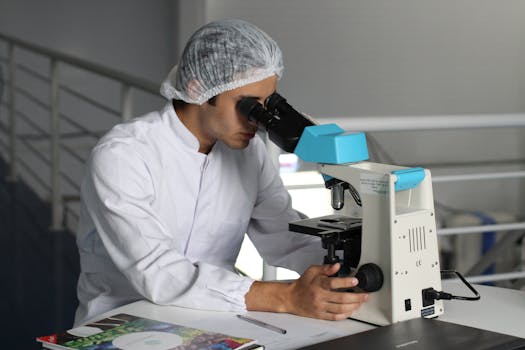
Acne Research & Resources: Current Insights and Future Directions
Acne is a common skin condition that affects millions of people worldwide, often starting in adolescence and continuing into adulthood. Understanding acne’s underlying causes and exploring effective treatments is crucial for improving the quality of life for those affected. This blog delves into the latest research and resources related to acne, offering insights into current studies and future directions.
Research Progress Related to Acne
The National Institute of Arthritis and Musculoskeletal and Skin Diseases (NIAMS) plays a pivotal role in acne research. By supporting studies across various institutions, NIAMS helps advance our understanding of acne and its management. Key research areas include:
- Genetic and Biological Underpinnings of Acne
- Genetic Factors: Studies are investigating how genetic mutations may predispose individuals to acne. For example, research on genes involved in sebum production and inflammation can provide insights into why some people develop acne more severely than others.
- Biological Mechanisms: Researchers are exploring the biological pathways that contribute to acne development. This includes understanding how hormonal changes and immune responses influence acne severity.
- Optimal Treatment Options
- New Medications: Ongoing research focuses on developing new drugs that target the root causes of acne. Innovations include medications that reduce inflammation, control sebum production, and address bacterial overgrowth.
- Laser and Light Therapies: Advances in light-based treatments, such as laser therapy, are being explored for their efficacy in treating acne. These therapies can help reduce inflammation and bacterial counts in the skin.
- Understanding the Inflammatory Process
- Inflammatory Pathways: Researchers are studying how inflammation contributes to acne. By identifying specific inflammatory pathways, new treatments can be designed to target these processes more effectively.
- Role of Immune System: The immune system’s role in acne development is another area of focus. Research is investigating how immune responses can exacerbate acne and how to modulate these responses for better management.
- Skin Microbiome and Acne
- Microbiome Impact: The skin microbiome, which consists of various microorganisms living on the skin, plays a role in acne. Studies are examining how imbalances in these microbial communities might contribute to acne development.
- Probiotics and Prebiotics: Research is exploring whether probiotics and prebiotics can help restore a healthy skin microbiome and reduce acne symptoms.
- Gut Flora and Acne
- Gut-Skin Axis: The relationship between gut health and skin conditions, including acne, is gaining attention. Research is looking into how changes in gut flora might influence acne and whether improving gut health can positively affect skin conditions.
- Diet and Acne: Studies are also examining how dietary factors, including probiotics, fiber, and nutrients, impact acne through their effects on gut health.
Frequently Asked Questions (FAQs)
1. What is the main cause of acne? Acne is primarily caused by a combination of factors including excess sebum production, clogged hair follicles, bacterial growth, and inflammation. Genetics and hormonal changes also play a significant role.
2. How can new treatments help manage acne? New treatments are focusing on reducing inflammation, controlling sebum production, and targeting bacterial infections. Advances in medications and light therapies offer promising options for more effective acne management.
3. How does the skin microbiome affect acne? An imbalance in the skin microbiome can lead to increased bacterial growth and inflammation, contributing to acne. Research is exploring ways to restore a healthy microbiome to help manage acne symptoms.
4. What is the gut-skin axis? The gut-skin axis refers to the connection between gut health and skin conditions. Changes in gut flora can influence skin health, and improving gut health may benefit individuals with acne.
5. Are there any promising new therapies for acne? Yes, research is exploring new medications, laser and light therapies, and treatments targeting specific inflammatory pathways. These developments offer hope for more effective acne treatments in the future.
Additional Resources
For more information on acne research and treatment options, consider exploring these resources:
Conclusion
The ongoing research into acne aims to unravel the complexities of this common skin condition and to develop more effective treatments. From genetic studies to advancements in therapy, the progress made provides hope for better management and potential cures. For those affected by acne, staying informed about the latest research and treatment options can make a significant difference in managing this condition.



You must be logged in to post a comment.